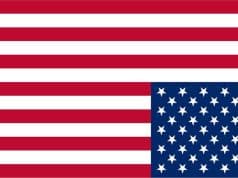Recently I was confronted in a parking lot by a younger man and his girlfriend who said I “took their parking space”. In the first mille-seconds I thought “oh shit” but then experience kicked in and I took note of how he was standing, which hand he was likely to punch with and recalling I had been punched before knew I could fight through it. I moved to a fighting stance and immediately took note of his soft spots (eyes, throat, groin, knees, shins and feet) and figured which he was defending least. His girlfriend suddenly stopped him and said, “No…walk away Joe…it’s not worth it. The boyfriend stopped, looked around and said “aw f*#k you, old man” and they walked away.” I watched them until I knew they were gone and then LEFT! Experience helped me prepare and also told me to not tempt fate. Am I calling for all combative firearms instructors to be conflict veterans? Should you seek out such experience? Nope…not a good idea as anytime you enter conflict you run the risk of losing! And if you are injured which is likely (if not probable) is medical assistance readily available? Simultaneously, if training was the sole key to prevailing in conflict then we would never lose a member of our military as they are certainly the best trained military in the world. In conflict, shit happens…
Killing is not the “experience” I am referring to…hell, anyone can kill. Give a ten year old a steak knife and they can walk up and kill someone with no prior thought or training. The experience I am referring to is action(s) taken to save your life or the life of others while willingly placing yourself in harm’s way… that is what I feel is truly instructional. Over the last 30 years I have interviewed many people who have been in armed conflict, have written several articles about it and one thing that stood out time and again was the person who prevailed in conflict was the one who took action…not necessarily the one who was the better shot, could shoot the fastest strings, had the more expensive gun or the latest tactical knife. In many of the encounters I studied no one was killed (which is instructional in itself) and this was due to the actions taken by the person(s) involved. I have long realized these actions were the lessons learned, not whether a person was killed in the melee.
A person who has taken such action has an understanding of conflict that cannot be obtained any other way, thus, they instruct the subject “better”. Keep in mind, however, there are many combat veterans who do not have the personality/capability to teach the lessons they have learned …many are just not teachers…but that does not mean we should not learn from their experiences. At the same time, the best combative skills instructor will be the one who has both experience AND skill. I say this as I have met many instructors that do not demonstrate for their students because they can’t shoot! A solid instructor does not have to shoot to the level of a national champion as these folks are “freaks of nature” much like an Olympic medalist…they have something in their muscular/skeletal system that makes them truly exceptional. A solid instructor must shoot well enough to demonstrate their lesson(s) on demand understand their relevance and communicate them both verbally and physically. Like an NFL coach, seldom can they play the game like their star players, but they did play so they have the “been there/done that” empathy I spoke of earlier. I am not a gifted shooter and have worked hard to develop and maintain the skills I have, but due to my experience I realize I do not have to shoot a sub-two second Bill Drill to prevail in armed conflict…just be more WILLING to fight than my opponent and this willingness/confidence comes from skill and experience.
No, the combative firearms instructor does not need to have experienced conflict, but do you think presenting the essential skills will be enhanced if you do? Let me ask this…would you be better served taking a course in race car driving from someone who has actually been in a race versus someone who has just trained to race? How about mountain climbing? Would you prefer being taught by someone who had actually climbed a mountain, understanding the dangers one will face, versus someone who had only trained on a climbing wall? Admittedly, you can be taught solid concepts and techniques by someone who had trained on a race track or climbing wall, but they will not be able to share the knowledge based on experience of someone who has actually “been there, done that”.
Please keep in mind that I am not talking about someone teaching how to shoot…shooting is not fighting, shooting is merely a component of fighting. Most local CCW/CPL certification courses are about firearms safety and basic shooting skills and there are many people who do this well, but such courses are just the beginning of a journey and few (if any!) basic concealed handgun courses have anything to do with combat. I have had the good fortune to receive training from some of the finest military, law enforcement and competition shooters/instructors in the world and have learned something from them all. No one taught me more about shooting than John Shaw but he did not teach me how to fight, for that I went to Gunsite, Thunder Ranch or to instructors like Kelly McCann…those who had been in conflict and know how to deal with it. By the way, such training institutions seek out instructors with combat experience as they understand its importance on how the instructor views and teaches the subject.
We are all products of our life experience…it can’t be helped and this is especially true for combative firearms instructors. As I have made my way through the training circuit, I have noticed how an instructor’s background affects the content of their course(s). In the case of competitive shooters who make the “jump” to combat, the focus of the course is usually on the electronic timer and how fast drills can be shot, while the instructor who has been shot at tends to focus on accuracy and building particular purpose driven skills, skills that will help you save your life and can articulate why they will do so. A drill should be a confirmation of a particular set of skills being mastered, they should not be the focus of the course but I see this more and more these days as shooting fast seems to be “in”. It’s not the instructor’s fault, really…they are teaching what they know, what their experience base is. Recently I was talking to a student during a break in one of my classes who told me he had spent a huge amount of time and ammo trying to shoot a particular drill in a given time. He had finally done so successfully and was quite proud. When I said, “Cool…what’s it mean?” he was dumb founded. “What do you mean what’s it mean?” “Just that”, I said, “how does this accomplishment better prepare you for conflict? That is what you are training for, right?” He had no answer. If you can’t articulate how or why a certain drill enhances your ability to prevail in conflict then you might want to ask yourself what are you doing?





Dave- We are products of the same generation and worked the street at a time where acceptable standards for everything were different. I have a degree of understanding and experience that places me at the upper end of your curve. It is not something I am proud of. It simply is what it is and I hope all of those days are behind me.
I could not agree with you more. If I could only add one more thought to your well written article, it would be about the other aspect found in every encounter. Accountability.
This accounts for the differences between a law abiding officer (or citizen)showing a reluctance to fight.
Your point about the amount of experience
(previous shootings) recorded in the study by the felons is a call to review your mindset for training and life.
For other industry ‘so called professionals’ to trash talk your point of view is something you don’t need to defend. Hopefully your readers and students (particularly those who serve) will take this lesson to heart.
Nice work.
Just a quick note. Thanks so much Dave for ALL articles. Thanks. – Hock
While experience has its place in instruction, that assumes that the ‘experience’ was worthwhile to impart to others. In other words, did the person survive and thrive because they were good and did things correctly or was due to poor dumb luck? There’s a lot more of the latter out there than people like to admit.
For instance, let’s take the ‘experience’ of Officer G in this LAPD incident. Unless he’s done significant remediation, his experience is not what I plan to model my performance on.
Sorry, I am going to make you read through the whole report because I think the context of his performance in relation to the other officers involved is important.
http://www.lapdonline.org/assets/pdf/022-05%20Public%20BOPC%20Summary.pdf
Analogy ahead…
I have given birth to five children. By itself, that does not qualify me to be an obstetrician.
The obstetrician who delivered my youngest child had never been pregnant in his life, and never would. But he still made a quite comfortable living teaching people how to give birth and then helping them do it.